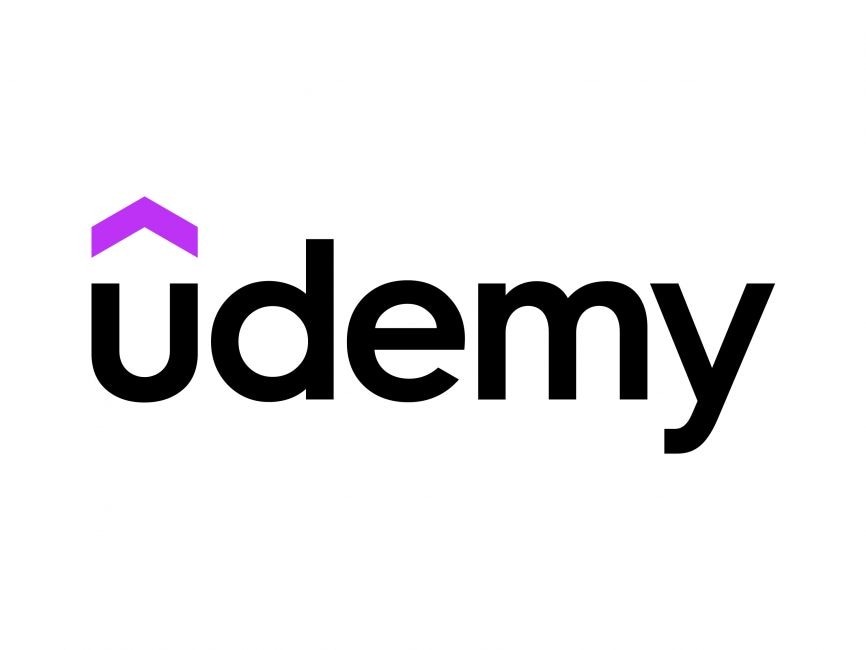
Knowledge is power is an old saying. One should strive to push oneself beyond one’s comfort zone to acquire knowledge.
One of the benefits of the Digital Era is that knowledge is easily accessible to all, more than ever before at the just the click of button & within seconds.
Whatever be the area of knowledge that you are seeking, you will get courses readily available in that sphere to fulfill your need of gaining knowledge in that sphere.
This not just from individuals & experts but some of the top & reputable universities world over.
Online learning platforms have democratized learning and improved the world of education for both learners and instructors.
Online learning platforms can change the way higher education works in the future.
Higher education till some time back was limited to a privileged few, but with the emergence of courses providing Ivy league education, more students will fall under the group of those having taken higher education and qualified to be offered work in those fields.
No matter where you are in the world or how little prior experience you have with a subject, you can learn just about anything, merely by having an internet connection.
From exclusive virtual classrooms to online lectures, an increasing number of students are turning to top e-learning platforms for their higher education needs.
The industry is growing by around 5% every year and students of all levels, including those in corporate training, are now heavily relying on the internet to deliver their education.
This post aims to cover the Top Online Learning platforms for 2024, to help you make an informed choice.
Advantages of online courses

- Easy accessibility
- Coverage of a variety of subjects
- Affordability
- Flexibility
- Convenience
- Continuous updates and relevance
- Studying at your own pace
- Global reach
- Interactive learning tools
- Community & networking
- Innovative learning methods
- Skill development and career advancement
Factors for choosing between online courses

There are a number of websites offering online courses on various topics and with the growing number of these, it becomes difficult to find a course or learning platform that is the best investment of time and money in terms of short term and long term gains.
Below are some of the factors you can consider to evaluate between courses
1. Course Content
This is the most important factor in selecting an online course to learn.
All online courses have a unique angle to covering a subject and therefore you need to go through the course content and select the one which delivers topics you are hoping to learn. Eg. In programming, there are so many different languages and disciplines that a single course will not be able to do justice to covering them all.
It’s beneficial to understand the type of content covered and the learning outcomes expected from undertaking an online degree.
When searching for the right course, it is advisable that you closely evaluate the modules on offer – will they help to achieve your goals?
If the primary focus is to enhance your career for example, it’s important to consider how the modules you study will help to bridge the gap between your current capabilities and the job roles you aspire to.
Make sure to do adequate research on this before you finalise a course for yourself.
2. Price
Online courses are available at varying prices and hence price becomes a factor of consideration when selecting an online course.
The value that the course provides in terms of the content – price matrix is a key criteria for choosing which course one would like to pursue.
There are many free courses in the market, but invariably the content, depth and credibility is vastly different between a free and paid course.
The very fact that paid courses offer certification is a reason enough to choose them, especially if you are doing the course to take up professional work basis it post completing the course.
Within the pricing spectrum come other factors like lifetime free access, subscription based learning etc. play a role in deciding which course would be most suitable to your needs.
3. Course Developer
Everyone claims to be an expert in his/her field. With the open web, anyone can create courses.
Whether that course is good for you or not is difficult to assess.
It is critical to pay attention to the educational and professional background of the course designers and their expertise in the subject matter.
Almost all courses have a few free videos for you to try out. If you like the instructor’s teaching style, that course can work out for you.
Even though you are doing the course virtually, you should be able to derive maximum benefits from the course through your instructor.
You should be able to reach out to them and participate in discussion forums to maximize peer learning.
It is the responsibility of the instructors to make such discussions possible.
4. Interactivity and Engagement
Make sure to check the interactivity and engagement level of the course.
Features such as gamification, including leaderboards, badges, points, certificates and appropriate tasks/tests after each course, make learning much more effective for higher education students.
5. Certifications
Having eligible proof of your efforts or gained knowledge is always a great way to kick-start or advance your career.
Certificates, specializations or online degrees are great tools to do just that.
So before deciding which e-learning platform is the best for you, be sure to compare online courses & the certifications they offer upon completion.
It’s also important to find out whether the certificates are free or paid.
6. Networking
Meeting like-minded people and making contacts is often considered one of the most valuable things to gain from a postgraduate degree.
Just like enrolling onto a campus course, a student studying online should feel like they are part of a community who share similar industry and/or professional interests.
Look for an online degree where peer to peer interaction is central to the course focus and the network you build could prove valuable to your professional development.
Typical online networking opportunities might include group work, student discussion forums and synchronous sessions.
7. Flexibility
Flexibility is one of the main reasons that busy professionals choose to study online. It’s important to consider your work and personal commitments and how an online degree would help, rather than hinder your present situation. If a course offers flexible online learning, it’s worth researching exactly how flexible it is.
Things to look for include:
– Availability of module electives
– Flexibility on duration of the course (can you extend the timeline if you need to?)
– The amount of study time required each week
It’s important that you have a solid understanding of what will be expected of you when you enrol on the course and how much flexibility there will be to make the course right for you.
8. Self-Paced Vs. Scheduled
Deciding between these two options is one of the major considerations to take into account when choosing an online course.
It is important to check if the course can be followed at your own pace.
This will be the best option for those with irregular work hours or who have a busy family schedule, as it can easily fit into your daily or weekly routine.
Just be sure to keep a somewhat steady pace so you don’t have to keep going back to review what has been dealt with before, eating away at your precious time.
If the course follows a set schedule and you have to study a certain amount of hours every week, be prepared to reserve those hours. Just like regular classes, these can easily add up in coursework if you are not diligent.
Course descriptions will likely contain the number of study hours they expect you to reserve for every unit.
9. Reviews
As with every other product or service, relying solely on the offered description can lead to disappointment and more time invested looking for an alternative afterward.
Therefore, every time you find an interesting course, it is strongly advised to look online for reviews.
A quick Google search may provide you with real experience tales from others who have taken the same course.
Beware of reviews posted directly on course descriptions of smaller platforms though, as these can easily be manipulated.
10. Learning Styles
Think about how you learn best.
Many distance learning programs offer a variety of learning materials and activities.
Some may include live lectures, discussion forums or collaborative projects.
Consider your learning style and choose a program that caters to your needs.
Now let's take a look at the Top 10 online courses for 2024
#1. Coursera

This American online learning platform for higher education stands as one of the top e-learning platforms and offers college-level courses from some of the world’s leading universities.
It collaborates with 275+ leading universities like Yale, Johns Hopkins University, and IIT Kharagpur for its courses.
It provides 7000+ courses with the Coursera premium subscription in subjects such as Computer Science, Business, Public Health, Machine Learning, Data Science, and more
Features
- Courses from top universities
- Specializations and degree programs
- Coursera for Business for corporate training
Pros
- High-quality academic content
- Variety of topics and specializations
Cons
- Some courses can be expensive
- The emphasis on academic content may not suit all learners
Paid courses start at $9.99, with certificate-level courses beginning at $39, and university courses at $2,000.
You can also choose to pay $59 a month or a $399 annual fee to unlock all the courses on Coursera.
However, the monthly or yearly subscriptions do not include university degrees
2. LinkedIn Learning

Started as Lynda.com back in 1995, LinkedIn Learning features over 17,000 courses on topics across business, technology and creativity.
LinkedIn Learning is great at teaching you how to do complex things, simply.
It does this by breaking big, technical topics down into bitesize components.
For example, you can learn the ins and outs of Adobe apps like Photoshop, InDesign and Illustrator as well as rendering in Blender, SketchUp and Maya
Features
- Integration with LinkedIn network
- Business and professional skills courses
- Learning paths for career development
Pros
- Integration with professional networking
- High-quality business-oriented courses
Cons
- Limited free content.
- Monthly subscription required for full access
You can buy courses individually or get a recurring subscription.
Individual courses vary between $20 and $50.
LinkedIn Learning costs $39.99 for a monthly subscription, and $239.88 for an annual plan (which is a 50% savings!)
These plans also give you access to LinkedIn Premium, with advanced networking and career-building tools.
3. Skillshare

There are 35000+ courses on Skillshare, which are often led by creatives who are well known in their field.
The courses rarely go beyond two hours in length and are broken down further into 3 to 5 minute episodes so they’re easier to digest.
This makes learning on Skillshare accessible even for people who don’t have a lot of free time at once.
Skillshare stands out as a creative online learning platform, offering courses in design, photography, writing, and more.
The platform adopts a community-driven approach, emphasizing project-based learning.
There are some free introductory courses but to get access to the full catalog, you need to purchase a subscription.
Features
- Focus on creative skills
- Project-based learning
- Community-driven content
Pros
- Broad range of creative topics
- Affordable subscription pricing
Cons
- Quality of courses can vary
- Limited emphasis on academic or technical subjects
Prices vary by your country of residence. However, on average, you can expect to pay $168 per year, or $14 per month.
#4. edX
If you’re looking for a more formal learning environment, edX is one of the best options available online.
This platform partners with top universities, from Harvard to MIT to Berkeley, to offer real university courses online.
This is especially great for learners in remote locations or anyone who doesn’t want to commute to an in-person class for their degree.

Features
- University-backed courses
- MicroMasters and professional certificates
- Global partnerships
Pros
- Emphasis on academic rigor
- Options for professional certifications
Cons
- Some courses may have a steep learning curve
- Verified certificates can be pricey
5. Open Learning

OpenLearning, an Australian platform, partners with leading institutions and offers more than 4,000 courses on a variety of subjects.
What sets OpenLearning apart is an engaging and supportive community of more than 3 million learners.
As a bonus, OpenLearning leverages AI technology to continually provide new information and better flow of the online learning experience!
Lots of courses on the OpenLearning platform are free. Although the ones to get university credentials usually cost anywhere between $150 and $500.
Features
- Social learning approach
- Collaboration and group activities
- Accessible pricing structure
Pros
- Emphasis on student engagement
- Flexible pricing option.
Cons
- Limited recognition compared to larger platforms
- Smaller course catalog
6. Udemy

With more than 213,000 courses, 60,000 instructors, and 62 million students, Udemy is the largest online learning platform out there, covering every niche you can think of.
There’s no unifying theme on Udemy — you can really learn anything, from graphic design to personal development.
With an affordable pay-per-course model, Udemy’s user-friendly platform is constantly updated with new content. However, the quality of courses can vary significantly, and the platform may not be the best choice for those seeking accredited or academic content.
Features
- Wide range of topics and skills
- Affordable individual courses
- User-friendly platform
Pros
- Affordable pricing
- Diverse and constantly updated course catalog
Cons
- Quality can vary significantly between courses
- Limited academic and accredited content
7. Treehouse

Treehouse specializes in technology-related courses, with an emphasis on web development, coding, and programming skills.
The platform offers project-based learning and career-focused tracks.
Its course topics may have less diversity compared to broader platforms, and its audience may be more niche, targeting those specifically interested in technology and coding.
Features
- Tech-focused courses
- Project-based learning
- Career-focused tracks
Pros
- Industry-relevant content
- Emphasis on practical skills
Cons
- Limited course topics
- Caters to limited audience of tech learners
8. MasterClass

MasterClass is a platform that lets anyone learn from the world’s best practitioners, be it Gordon Ramsey for cooking, or Martin Scorsese for film directing.
There are over 180 courses currently available. All beautifully shot, produced and broken down into 15 to 20 bite-sized lessons.
The advice is often practical and there are workbooks with extra information available.
However, the platform works best for those who want to expose themselves to an overview of lots of different crafts. Or, for those who want to learn from their favourite celebrities!
Features
- Celebrity-led courses
- High-quality video production
- Broad range of topics, including arts, business, and lifestyle
Pros
- Access to insights from industry leaders
- Engaging and professionally produced content
Cons
- Limited interactivity compared to some other platforms
- Focused on inspiration and storytelling more than hands-on skills
9. Khan Academy

Another one of the top online learning platforms is Khan Academy.
Started by Sal Khan as a way to help his cousins study math, today, Khan Academy features over 10,000 video lessons on various topics.
Most of the platform revolves around foundational topics that you would learn in school such as sciences, math, accounting, physics, and economics. It’s a great resource center for parents that want to help their child access an informative, engaging, and affordable version of online tutoring.
Over 999 million lessons have been delivered on the platform, helping people of all ages and levels of study with their homework
Features
- Free educational content
- Adaptive learning technology
- Extensive coverage of K-12 subjects
Pros
- Free and accessible to all
- Comprehensive K-12 curriculum
Cons
- Limited higher education content
- Less interactive compared to some platforms
10. Future Learn

FutureLearn sets itself apart with a social learning approach, offering online courses and degrees in collaboration with universities and institutions worldwide.
The platform encourages collaborative learning through discussion forums and peer interactions.
FutureLearn provides courses from leading institutions, with a focus on diverse and engaging content.
However, some users may find that certain courses lack depth in specific subject areas. While many courses are free, payment may be required for certification.
Features
- Social learning approach
- Courses from leading institutions
- Access to free courses
Pros
- Collaborative learning environment
- Diverse course offerings
Cons
- Limited depth in certain subject areas
- Some courses may require payment for certification